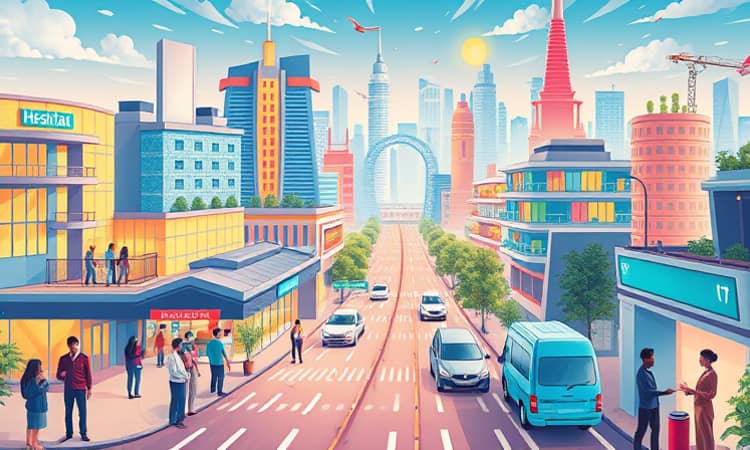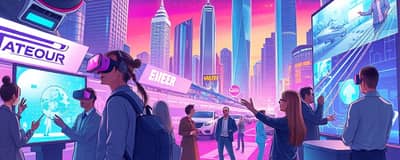Artificial Intelligence (AI) has become an integral part of our lives, reshaping industries and driving innovations at an unprecedented pace. From healthcare to transportation, AI is creating a paradigm shift that promises to enhance our overall quality of life. In this article, we will explore the five key areas where AI is making a significant impact, along with the ethical considerations that come with these advancements.
As we delve into each factor, it is essential to recognize both the benefits and potential challenges that arise with the increasing adoption of AI technologies. Balancing innovation with ethical responsibility will ensure that we harness AI's power positively and sustainably. Let us now look at how AI is transforming our world.
1. Healthcare Revolution
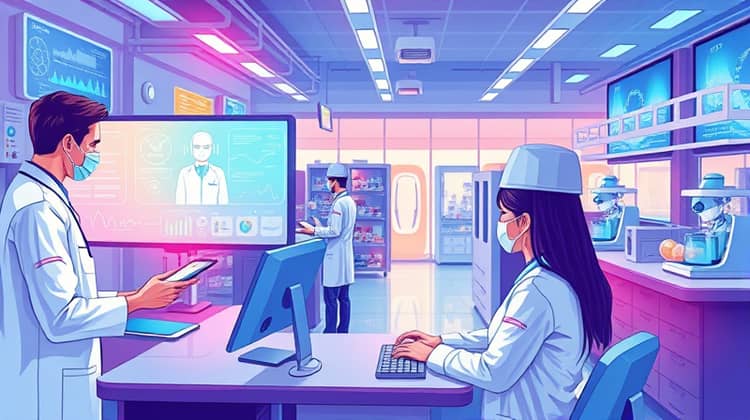
One of the most profound impacts of AI is witnessed in the healthcare sector. From diagnostics to personalized medicine, AI technologies are revolutionizing patient care and outcomes. Machine learning algorithms can analyze vast amounts of medical data, assisting healthcare professionals in making faster and more accurate diagnoses.
Additionally, AI-driven tools are enhancing the development of new drugs by predicting how different substances interact with one another. This not only reduces the time and cost involved in drug discovery, but it also leads to the creation of more effective treatments tailored to individual needs.
Furthermore, virtual health assistants and telemedicine have emerged, providing patients with real-time guidance and reducing barriers to access. These advancements are not only improving the efficiency of healthcare systems but also making healthcare more accessible to people across the globe.
- AI algorithms improve diagnostic accuracy in medical imaging.
- Personalized treatment plans are developed through patient data analysis.
- Virtual health assistants provide round-the-clock support to patients.
2. Intelligent Transportation
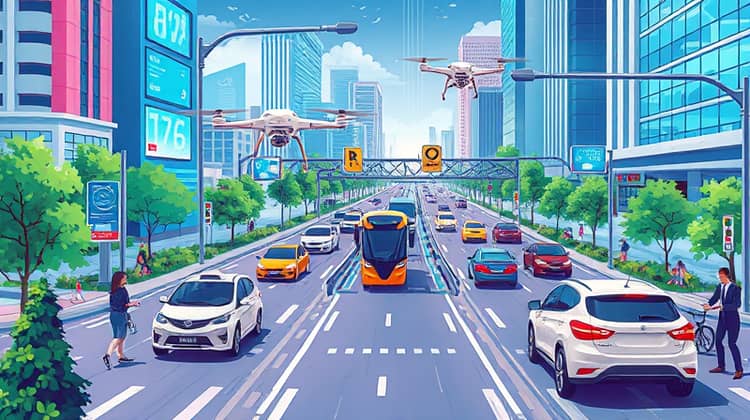
Transportation is another field that has experienced a significant transformation due to AI technology. Autonomous vehicles are being developed and tested, which could redefine how we travel, reducing accidents and optimizing traffic flow. AI systems can analyze real-time data from various sources to make instant decisions, improving road safety and efficiency.
Moreover, ride-sharing platforms are utilizing AI algorithms to match drivers with passengers more effectively, streamlining the carpooling experience and minimizing wait times. The impact of AI on transportation also extends to logistics, where intelligent systems predict delivery times and optimize routes for trucks, leading to efficiency gains in the supply chain.
As cities adapt to these transportation innovations, we may see a decrease in congestion and emissions, contributing to more sustainable urban living. The possibility of integrating AI into public transportation systems further emphasizes the need for smart strategies in urban planning.
- AI supports the development of autonomous vehicles.
- Ride-sharing platforms optimize matches for users.
- Logistics companies use AI to improve route efficiency.
3. Smarter Cities
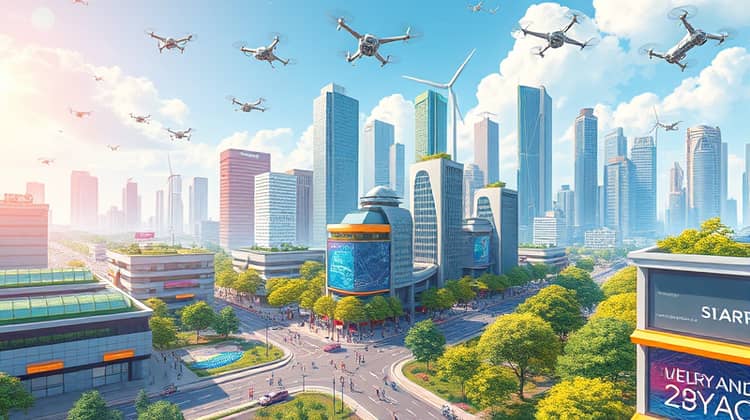
The concept of smart cities is gaining traction, with AI at the core of urban planning and management. AI technology is employed to monitor and control systems like energy use, waste management, and public safety, resulting in enhanced operational efficiency and improved quality of life for residents.
For instance, AI-powered sensors can track air quality and traffic flows, helping city managers to make data-driven decisions that improve urban infrastructure. Energy usage can be optimized through AI predictive systems, allowing cities to reduce their carbon footprint while maintaining a high standard of living for their inhabitants.
Furthermore, integrating AI in smart city projects fosters better engagement with citizens, as it enables real-time communication and services, enhancing public participation and transparency in governance.
- AI technologies optimize energy consumption in buildings.
- Smart traffic lights improve flow and reduce waits.
- Public safety systems use AI for faster incident response.
As urban populations continue to grow, the need for smarter cities equipped with advanced technology is paramount. Implementing AI solutions not only addresses current challenges but also anticipates future demands, fostering sustainable urban development.
4. Enhanced Education

Education is undergoing a transformation powered by artificial intelligence, enabling personalized learning experiences that cater to individual student needs. Through adaptive learning platforms, AI can analyze a student's strengths and weaknesses, providing them with customized resources and lessons.
This tailored approach fosters better engagement and retention among students, as they are more likely to grasp concepts presented in a manner suited to their learning style. Additionally, AI facilitates administrative tasks for educators, allowing them to focus on teaching rather than monotonous paperwork, which leads to a more enriched classroom environment.
- AI analyzes student performance to deliver personalized resources.
- Educators benefit from automated grading and administrative tasks.
- Virtual tutors offer support outside traditional classroom hours.
5. Robotics and Automation
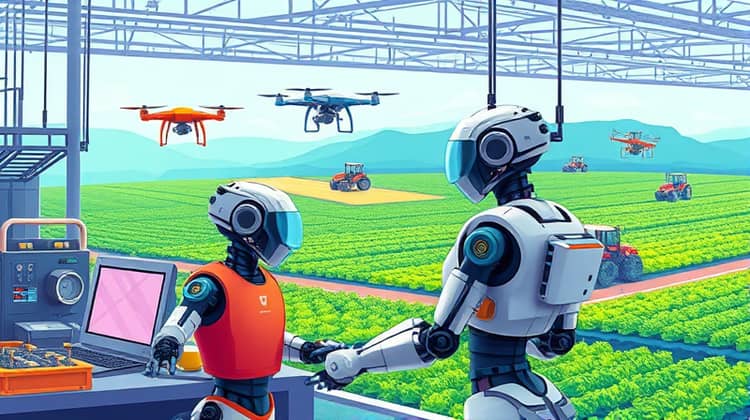
The integration of AI into robotics has paved the way for automation across numerous industries, from manufacturing to agriculture. Robots equipped with AI capabilities can learn from their environments, adapt to changes, and perform complex tasks that were previously thought impossible without human intervention.
In manufacturing, AI-driven robots operate alongside human workers, increasing productivity while maintaining quality control. In agriculture, autonomous drones and tractors are transforming the way food is produced, enabling precision farming that maximizes yield while minimizing waste.
As we continue to advance in AI technologies, the role of robotics will expand further, leading to new possibilities and efficiency in multiple sectors.
- AI robots enhance accuracy and efficiency in manufacturing.
- Drones powered by AI assist in precision agriculture.
- Robots are increasingly incorporated into logistics and supply chain management.
The rise of robotics and automation signifies a profound shift in workforce dynamics, necessitating a rethinking of skills training and education to prepare individuals for an AI-driven economy.
The Ethical Dimension
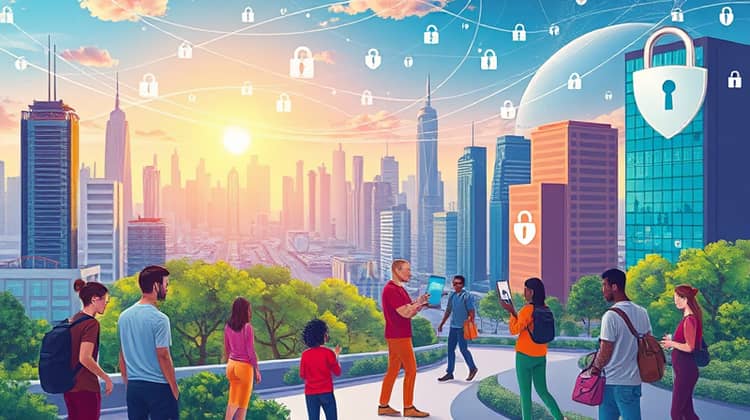
As we embrace the benefits of AI, we must also confront the ethical challenges that accompany these advancements. Privacy concerns and data security are paramount, especially with AI systems that rely on vast amounts of personal information. Ensuring that developers adhere to ethical guidelines while creating AI technologies is crucial to building trust among users.
- Data privacy and security are major concerns in AI applications.
- Bias in AI algorithms can perpetuate inequalities.
- There is a need for transparent AI governance frameworks.
Addressing these ethical issues not only helps create a safer environment for AI adoption but also fosters innovation that resonates with societal values. Engaging in public discourse about AI ethics ensures that we move forward responsibly, leveraging technology for the greater good.
Conclusion
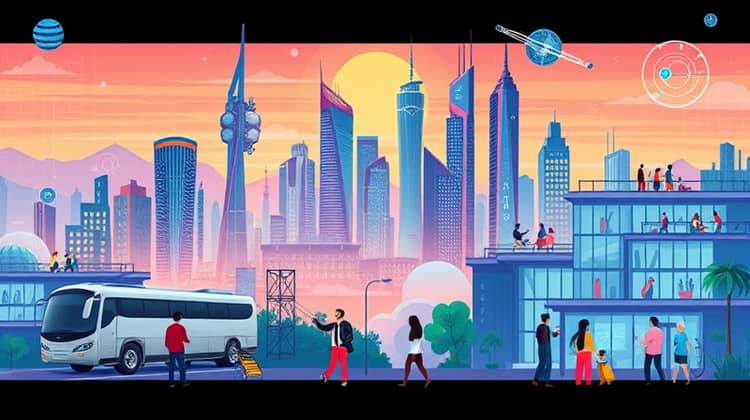
In conclusion, artificial intelligence has proven to be a transformative force that is touching every aspect of our lives. From healthcare advancements and intelligent transportation solutions to the rise of smarter cities and enhanced educational approaches, AI is creating a brighter future, one innovative step at a time.
However, with great power comes great responsibility. It is imperative that we navigate the opportunities and challenges presented by AI thoughtfully and ethically, ensuring that technology serves humanity and uplifts society as a whole.

